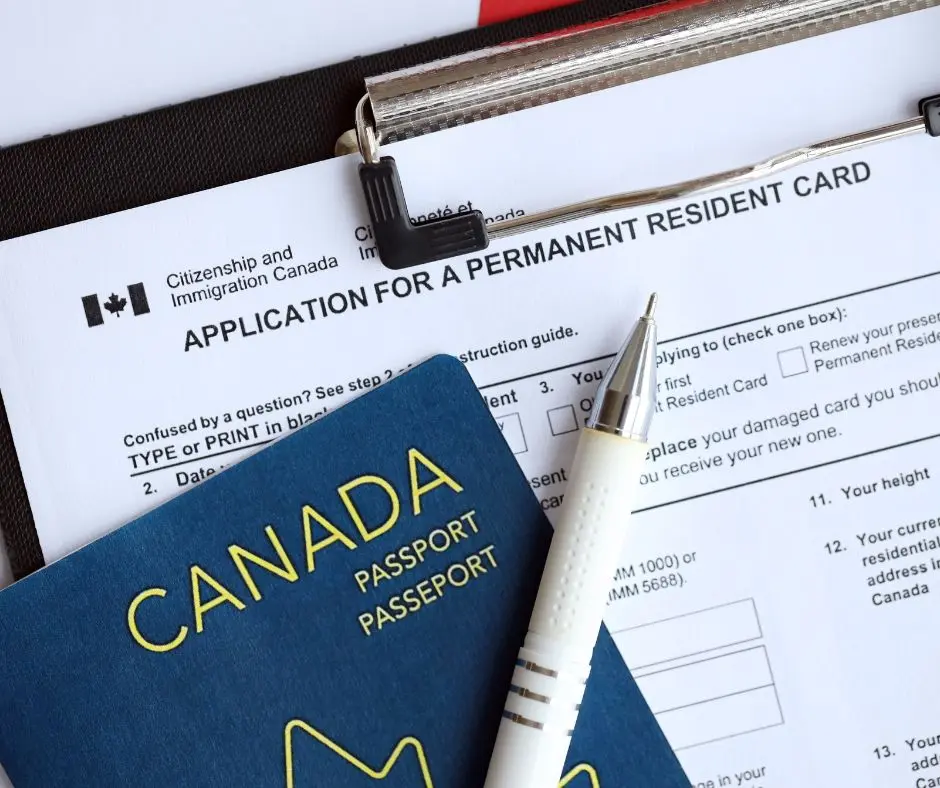Fast-track Canadian Permanent Residency through the Atlantic Immigration Program
The Atlantic Immigration Program (AIP) provides a special way for skilled workers who want to start a new life in the beautiful provinces of Atlantic Canada, including:
- New Brunswick
- Newfoundland and Labrador
- Nova Scotia
- Prince Edward Island (PEI)
This program is driven by employers looking to attract talented people to these lively areas. To qualify, you need to have a job offer from a designated employer in Atlantic Canada.

Advantages of the Atlantic Immigration Program (AIP)
The Atlantic Immigration Program (AIP) has several benefits for people who want to move to the Atlantic provinces, making it a great option compared to other Canadian immigration pathways:
- Faster processing times
- Work while applying for PR
- No Labour Market Impact Assessments (LMIAs) are needed
- Personalized settlement help
Faster processing times
The AIP is preferred by many immigrants because through the program eligible candidates can work in Canada while waiting for their PR status. Presently, it would require approximately eight months to process the PR application through the AIP an outcome faster than other immigration avenues.
LMIA-Exempt work permit
If candidates want to start working before getting their PR, they can apply for a temporary work permit that does not require a Labour Market Impact Assessment (LMIA). To qualify for this work permit, candidates must have:
- A job offer from a designated employer
- A letter of referral from the Atlantic province in which they intend to work from a designated employer
This work permit is valid for two years and is restricted to the employer of the job offered to the candidate. However, getting this work permit does not guarantee that their PR application will be approved.
Personalized settlement help
The AIP also focuses on helping newcomers settle into their new communities. Employers are encouraged to connect candidates with settlement agencies that can help create a personalized settlement plan. This means candidates have specific recommendations made to them, so they are likely to fit the new environment easily.
Find out if you are eligible to get in Canada →
Who is eligible for the Atlantic Immigration Program?
The AIP lets each of the four Atlantic provinces settle a particular number of applicants annually in adherence with employment demand. Candidates can live either inside or outside Canada, but they must meet certain requirements.
Main Requirements
To be eligible for the AIP, candidates need to have a job offer from a designated employer in Atlantic Canada and fall into one of these groups:
- Skilled Worker: This includes people with work experience either in Canada or abroad.
- Recent Graduate: This refers to students who graduated from recognized post-secondary schools in Atlantic Canada.
Eligibility for Skilled Workers
Skilled workers are eligible for the AIP if they meet these conditions:
- Ideally, they must have done at least 1560 work experience within the regulation five years, a 30-hour week if for a year in practice.
- Their work experience must have been gained in an NOC 2021 TEER category 0, 1, 2, 3, or 4.
Eligibility for Recent Graduates
Recent graduates can apply if they:
- Have a degree from a recognized post-secondary school in one of the four Atlantic provinces that requires at least two years of study.
- Studied as a full–time student when engaged in the process of studying
- Was a resident in one of the Atlantic provinces for at least 16 months in the two years before graduation.
- Possessed a legal right to work, study, or train while in Canada.
Other Criteria for AIP
Educational Requirements
Education needs vary depending on the NOC TEER of the job offer:
- NOC TEER 0 or 1: One-year Canadian post-secondary credential or something similar from another country.
- NOC TEER 2, 3, or 4: Canadian high school diploma or an equivalent from another country.
Note: Degrees obtained from other countries require an ECA report when applying to IRCC and the report must be less than 5 years when submitted.
Language Requirements
Candidates need to show they can communicate well in English or French based on the NOC TEER of their job offer:
- NOC TEER 0, 1, 2, or 3: A minimum Canadian Language Benchmark (CLB) of 5.
- NOC TEER 4: A minimum CLB of 4.
Language test results must be less than two years old at the time of application.
Settlement Funds
Applicants must prove they have enough money to support themselves and their families in Canada. The amount needed depends on family size:
| Number of Family Members | Funds Needed (in CAD) |
|---|---|
| 1 | $3,672 |
| 2 | $4,572 |
| 3 | $5,620 |
| 4 | $6,824 |
| 5 | $7,740 |
| 6 | $8,729 |
| 7 | $9,718 |
| For each additional member beyond 7 | $989 |
If someone is already living and working in Canada with a valid work permit, they don’t need to show proof of funds.
Differences between the Atlantic Immigration Program (AIP) and Provincial Nominee Programs (PNP)
The Provincial Nominee Program (PNP) lets provinces in Canada choose people who want to immigrate and live in that specific province. Here’s how AIP differs from PNPs:
| Feature | Atlantic Immigration Program (AIP) | Provincial Nominee Program (PNP) |
|---|---|---|
| Valid for | New Brunswick, Newfoundland & Labrador, Nova Scotia, Prince Edward Island | All provinces except Nunavut and Quebec |
| Need a job offer | Yes, from a designated employer | Not necessary, depending on the stream |
| Pathway to PR | One-step process; apply directly for PR | Two-step process; get provincial nomination first, then apply for federal PR |
| Processing time until PR | About 8 months | Varies by province and stream |
| Settlement Funds | Required, but usually less than Express Entry | Not all streams need proof of funds; amounts may be higher when required |
| Settlement Support | Requires a settlement plan | Most PNPs do not require a settlement plan |
Processing times can change based on demand for applications and may vary between individual cases.
How to apply for the Atlantic Immigration Program?
If you meet the eligibility requirements, follow these steps to apply for the AIP:
1. Get a job offer
You have to look for a job offer from a certain employer from one of the regions in the Atlantic. The job must meet these conditions:
- Full-Time Work: The job has to be a full-time job and the person cannot work in this position during the summer or as a part-time employee.
- For NOC TEER 0, 1, 2, or 3: This job offer must still be valid on the day that the individual becomes a permanent resident and for one year afterward.
- For NOC TEER 4: This means that for a job to be considered, an offer should be a permanent offer and there should not be an option of expiry period on the position.
2. Collect required documents
Gather the necessary documents:
- Language Test Results: This means; you need to provide a document that is to be used in proving your proficiency in a certain language.
- ECA Report: An Educational Credential Assessment Report if you have completed your education in any country other than Canada.
- Proof of Funds: Documents that prove to the court that you are capable of taking care of yourself and your dependents.
3. Create your settlement plan
After gathering your documents, connect with a settlement agency to create a settlement plan. This service is free and available whether you’re currently in Canada or outside the country. Your employer may help you find a settlement agency.
4. Certificate of Endorsement
It is when your employer applies for a Certificate of Endorsement for you in the province that they understand support for a job offer.
5. Apply for the permanent residence
From the letter of offer, the employer will need to apply for a permanent residency status online for the foreign worker. The stages of the application include:
- Submitting biometrics, if required.
- Filling out forms.
- Scanning all documents and photographs needed and uploading them.
- Paying the application fees.
What is a Designated Employer?
Designated employers are those employers who are licensed by the provincial government to hire foreign workers. To become designated, employers must meet certain criteria:
- Good Standing: Employment standards and health and safety laws are issued and must be complied with by employers.
- Active Operation: They had to have been in operation for two or more years under the same management in one of the Atlantic provinces or demonstrate continuous operation in another province or territory with the approval of that province or territory.
There is no extra cost for employers to become designated.
Increasing interest in the Atlantic Immigration Program
In the recent past, the region referred to as Atlantic Canada has received a large number of immigrants. In 2023, the rate of immigration to the regions touched a record high of 32,000 as per the Atlantic Economic Council’s Atlantic Immigration Tracker data; whereas, in the year 2013, there were only 5,800 immigrants.
Patrick Brannon, a senior researcher with the council, said, “For the first time, the three Maritime provinces are attracting immigrants in proportion to their share of Canada’s population.”
Due to the growing interest in the Atlantic provinces, some areas have paused the AIP to meet changing job market needs. For example:
- New Brunswick: As of September 18, the province stopped accepting new endorsement applications for the rest of the year because the 2024 limit had been reached. The program is expected to reopen in early 2025.
- Nova Scotia: There is an indefinite pause on immigration applications for food service supervisors (NOC 62020).
The Atlantic Immigration Program (AIP) offers a simple way for skilled workers and recent graduates to settle in Canada’s beautiful Atlantic provinces. Candidates need a job offer from a designated employer and must meet certain requirements, which allows them to enjoy faster processing times and tailored support. The AIP is gaining more attention every day as more fresh immigrations decide to relocate to Atlantic Canada, and therefore it is a good program to work with for people who would like to start anew and get better job prospects in the region. For the right approach, the AIP fully prepares and grants you the chance of residency and a prosperous future in the region.











